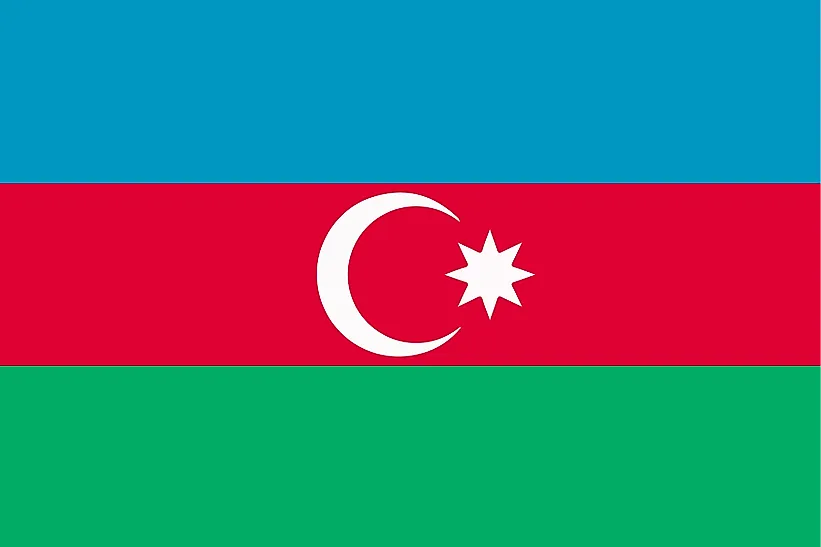
아제르바이잔
| 대륙 | 아시아 |
| 자본 | Baku |
| 인구 | 9,872,765 |
| GDP | $166.00억 |
| 1인당 GDP | $17,700 |
| 다이얼링 코드 | +994 |
| ISO 코드(2글자) | AZ |
| ISO 코드(3글자) | AZE |
Azerbaijan Landscapes






About Azerbaijan
Welcome to Azerbaijan, a captivating country where ancient traditions blend seamlessly with modern ambitions. Located at the boundary of Eastern Europe and Western Asia, this nation of approximately 10 million people occupies 86,600 square kilometers of diverse terrain. Known as the “Land of Fire” due to its natural gas fires that have burned for millennia, Azerbaijan combines rich cultural heritage with rapid modern development.
지리적 특징과 자연의 아름다움
Azerbaijan’s landscape is remarkably diverse, encompassing all of the Earth’s climatic zones except tropical. The Greater Caucasus Mountains in the north, reaching heights of over 4,000 meters, contrast dramatically with the Caspian Sea coastline to the east. The country features nearly half of the world’s mud volcanoes, creating otherworldly landscapes that attract scientists and tourists alike.
The Gobustan National Park, a UNESCO World Heritage site, showcases ancient rock art and unique geological formations. The Caucasus Mountains provide spectacular scenery and opportunities for outdoor activities, while the subtropical Lankaran region in the south offers lush forests and tea plantations.
The Absheron Peninsula, where the capital Baku is located, features unique natural phenomena including eternal flames emerging from the ground at Yanar Dag, giving the country its nickname “Land of Fire.”
문화 유산과 전통
Azerbaijani culture represents a unique fusion of Turkic, Persian, and European influences. The country’s rich cultural heritage is evident in its music, particularly mugham, a complex form of folk music recognized by UNESCO as Intangible Cultural Heritage. The art of Azerbaijani carpet weaving, also UNESCO-listed, demonstrates the nation’s sophisticated artistic traditions.
Traditional Azerbaijani cuisine reflects its position at the crossroads of civilizations, combining elements from Turkish, Iranian, and Central Asian culinary traditions. Signature dishes include pilaf, dolma, and various kebabs, while tea culture plays a central role in social life, served in distinctive pear-shaped glasses with local sweets.
The country’s architectural heritage spans centuries, from ancient fire temples to medieval palaces and modern masterpieces like the Flame Towers of Baku, which have become symbols of the nation’s renaissance.
역사 여행
Azerbaijan’s history stretches back to ancient times, with evidence of human settlement dating back to the Stone Age. The region has been part of various empires and kingdoms, including the Caucasian Albania, Arab Caliphate, and Persian Empire. The discovery of oil in the late 19th century transformed Baku into one of the world’s first oil boom towns.
After a brief period of independence following World War I, Azerbaijan became part of the Soviet Union until 1991. Since regaining independence, the country has undergone significant transformation, leveraging its energy resources to fuel rapid modernization while working to preserve its cultural heritage.
현대 경제 환경
Today’s Azerbaijan is primarily known for its oil and gas industry, which has driven remarkable economic growth since independence. The country has used its energy wealth to diversify its economy, investing in infrastructure, technology, and tourism sectors.
Baku, the capital, has emerged as a modern metropolis, hosting international events and showcasing ambitious architectural projects. The government’s strategic development plans focus on reducing dependence on hydrocarbons and developing non-oil sectors of the economy.
국제 관계 및 글로벌 포지셔닝
Azerbaijan maintains a balanced foreign policy, fostering relationships with both Western nations and regional powers. The country is a member of various international organizations and has positioned itself as a key energy supplier to European markets through projects like the Southern Gas Corridor.
알고 계셨나요?
• Azerbaijan was the world’s first Muslim-majority secular democratic republic, established in 1918?
• The world’s first industrially drilled oil well was in Bibi-Heybat, Baku, in 1846?
• The Baku-Tbilisi-Ceyhan pipeline is one of the longest oil pipelines in the world, connecting the Caspian Sea to the Mediterranean?
• Azerbaijan is home to more than half of the world’s mud volcanoes, with over 400 active ones?
결론
Azerbaijan stands as a fascinating example of a nation successfully bridging its ancient heritage with modern aspirations. From its fire-breathing hillsides to its ultra-modern capital, from its traditional music to its booming energy sector, Azerbaijan continues to evolve while maintaining its unique character. As it faces the challenges of the 21st century, including economic diversification and regional geopolitics, Azerbaijan remains committed to its path of sustainable development and cultural preservation.